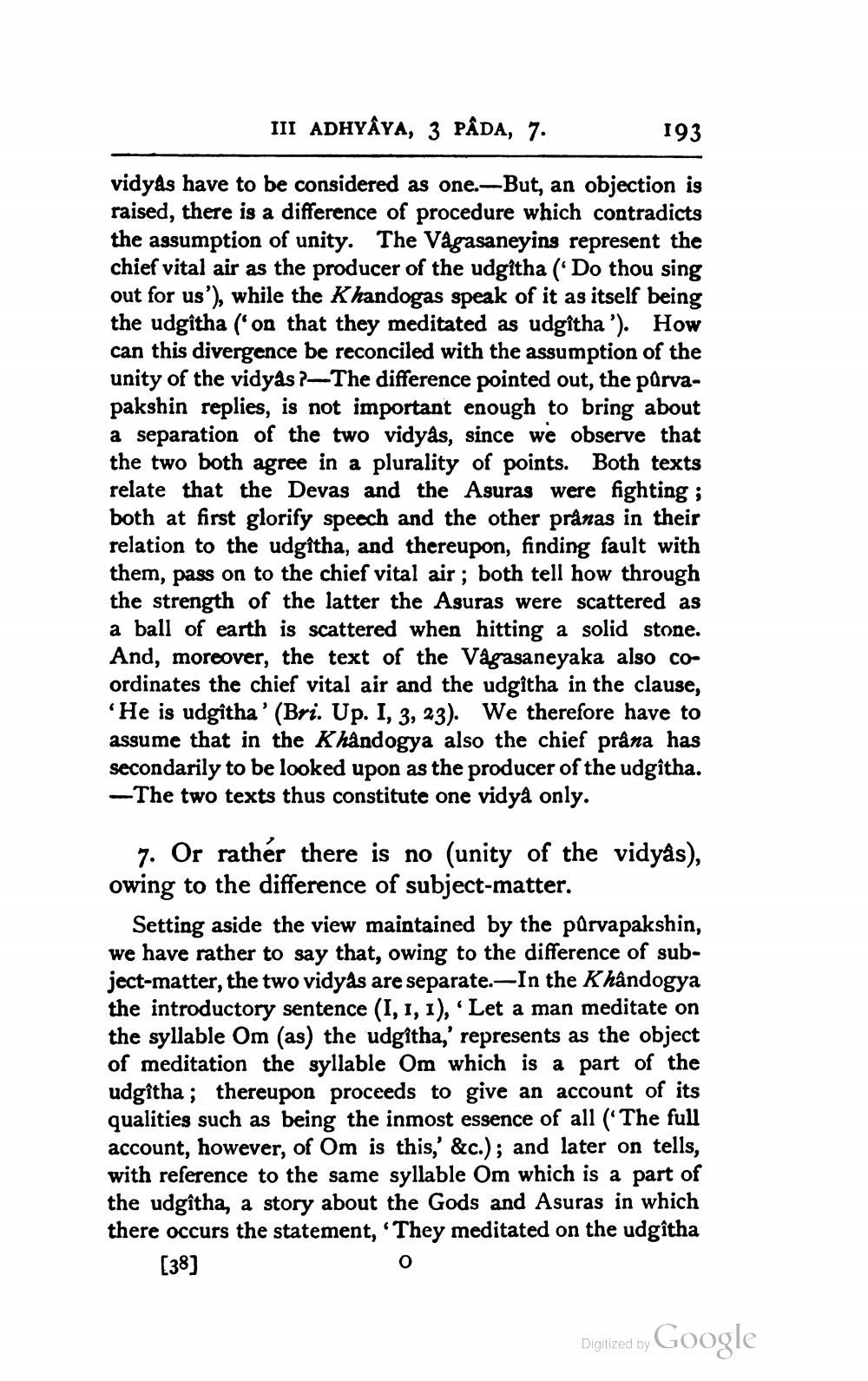________________
III ADHYÂYA, 3 PÂDA, 7.
193
vidyas have to be considered as one.-But, an objection is raised, there is a difference of procedure which contradicts the assumption of unity. The Vågasaneyins represent the chief vital air as the producer of the udgitha ('Do thou sing out for us'), while the Khandogas speak of it as itself being the udgitha (on that they meditated as udgîtha '). How can this divergence be reconciled with the assumption of the unity of the vidyas ?— The difference pointed out, the pärvapakshin replies, is not important enough to bring about a separation of the two vidyas, since we observe that the two both agree in a plurality of points. Both texts relate that the Devas and the Asuras were fighting ; both at first glorify speech and the other pränas in their relation to the udgîtha, and thereupon, finding fault with them, pass on to the chief vital air ; both tell how through the strength of the latter the Asuras were scattered as a ball of earth is scattered when hitting a solid stone. And, moreover, the text of the Vagasaneyaka also coordinates the chief vital air and the udgitha in the clause, 'He is udgitha' (Bri. Up. I, 3, 23). We therefore have to assume that in the Khandogya also the chief prâna has secondarily to be looked upon as the producer of the udgîtha. -The two texts thus constitute one vidya only.
7. Or rather there is no (unity of the vidyâs), owing to the difference of subject-matter.
Setting aside the view maintained by the purvapakshin, we have rather to say that, owing to the difference of subject-matter, the two vidyas are separate. In the Khândogya the introductory sentence (I, 1, 1), Let a man meditate on the syllable Om (as) the udgitha,' represents as the object of meditation the syllable Om which is a part of the udgitha; thereupon proceeds to give an account of its qualities such as being the inmost essence of all ("The full account, however, of Om is this,' &c.); and later on tells, with reference to the same syllable Om which is a part of the udgîtha, a story about the Gods and Asuras in which there occurs the statement, 'They meditated on the udgîtha
[38]
Digitized by
Digitized by Google




